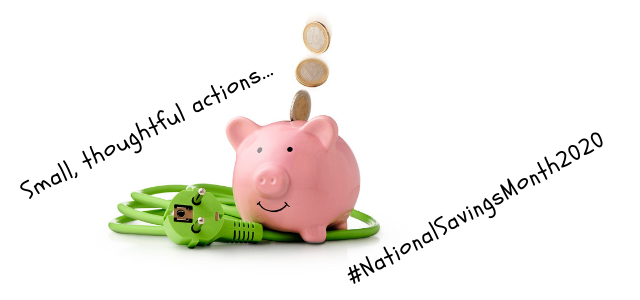What a difficult and emotional time it has been these past few months. Not to even mention the FINANCIAL challenges you’ve had to endure (and most likely still are dealing with). On a positive note: with 2020’s ‘financial lemons’ you might not be able to make lemonade yet, but in the meantime, you can at least try your best to put some tangy zest to good use (metaphorically speaking of course). It may be a challenging time for your financials but there are ways to still try and save money even when it feels impossible. If you have not been able to get your head around saving money during financially tough times, now is the time to ‘train your brain’, test this concept and set forth money-saving habits for years to come. July is #NationalSavingsMonth after all.
The key to cutting costs aka saving money is in ‘small’ actions. Perhaps insignificant for some, but with every action or reaction it is important to think before you ‘do’.
The possibility to save money during tough times comes in when you think about the outcome of your action before you implement it. Yes, train that brain of yours. “What does this mean exactly?” you may ask. Well, before you do anything (even the ‘smallest act’ possible) think of the financial implication(s) of your action and see if you can save some money with your action (or, in many cases, NO-action instead).
Take the following example into account: Before you start that washing machine or dishwasher for the third or fourth time this week – think of how you can save on the electricity bill this month. Remind yourself that you should limit an energy-hungry appliance to once a week. So, before pressing the ‘start cycle’, start planning your ‘wash schedule’ a bit better and implement a frugal, money-saving habit instead.
Here are another few ideas to help you gather certain thrifty thoughts and implement savvy-saving actions even while being in or facing a financial pinch:
Try PENNY-PINCHING HABITS while shopping
And, avoid unnecessary buys during your outings. Groceries and personal care items are indeed expensive. You, therefore, have to train your brain to look out for good prices and be unwilling to spend any extra money on things you do not need. Take your list with you when going shopping, and before you can even think of adding an ‘extra item’ to your cart, calculate the few rands that you can save and rather give that item’s aisle a skip.
‘Less bla bla bla & MORE MOOLAH LA LA’
Everyone has an opinion, right? But that does not mean you have to get overwhelmed with all the advice given to you. Take a look at YOUR situation, consider YOUR financial saving goals, and think logically about what can work for YOU. You know yourself better than anybody else. So, think about ways to boost your money-saving methods and try to put them to action. Tip for thought: Get your own creative ideas going and think out of the box when it comes to saving habits (for example, when it comes to fuel costs and everyday tasks that cost money) as it can play a crucial role to be able to get through those tough financial times.
Don’t overwhelm your thoughts with your current DEBT REALITY
But, step aside from any negative emotion and FIX YOUR DEBT practically instead. As soon as you get your debt out of the way you can indeed start tucking more than a few pennies away again. If you are in the unfortunate position to deal with debt, especially when you are finding yourself in financial hardship or tough situation, there are ways to clear your thoughts and implement practical actions to FIX your debt and to save money again:
- Snowball your debt – start to tackle your lowest debt amount (for example, a clothing account) and then move to clear the next debt. This method can be of good use to you during very difficult financial times.
- If you are a bit more diligent or competitive towards your saving goals and clearing your debt, use the avalanche method and start with your highest interest rated debt first (say your credit card) and move on to your other debts. As soon as your debt bills are out of the way you can add those savings amounts into a savings account or emergency fund.
- If you need to take more drastic measures to clear your debt and want to save some money on your credit installments, you can take a look and see if Debt Review will be a viable option for you. Debt Review is not a payment holiday but rather a rehabilitation process where you, with the help of a Debt Counsellor, can fix your debt pile in a sustainable and safe way. When debt-free, you can activate various saving methods/initiatives again.
Saving a penny here or there is not easy, especially while facing financial draining times. But, if you put your mind to it and action those thought-wise habits while doing even the ‘smallest of saving tasks’, you can indeed save some money in the process.
